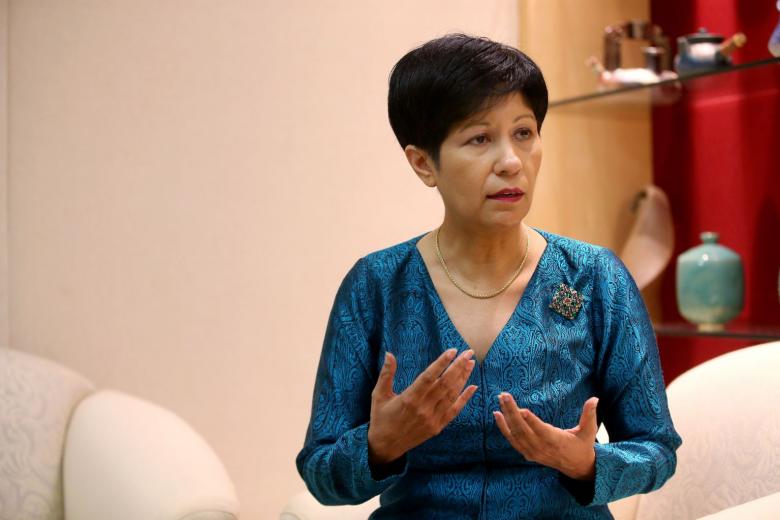SINGAPORE - Singapore must actively help to shape international law, Senior Minister of State for Finance and Law Indranee Rajah said on Thursday (Feb 8).
She explained that international norms and statutes increasingly determine what states can and cannot do within their borders, and therefore have a deep impact on Singapore's society and its economy.
"The impact of international law on Singapore's domestic economic and social life will continue to grow," she told 200 lawyers, diplomats and officials at the International Law Year in Review conference.
"Singapore must ensure that not only our national interests, but also our values, traditions and perspectives are brought to the table."
At the conference, organised by the National University of Singapore's Centre for International Law, the legal community discussed trends including recent cross-border legal disputes and domestic courts dealing with more foreign and international law issues.
In her opening speech, Ms Indranee made the case for why "now more than ever", Singapore lawyers need to step up to help shape international law.
She highlighted the trend of international law governing how states behave within their own borders. For instance, international trade law allows or bans the tariffs and regulatory barriers which states may impose on goods and services.
These rules affect areas such as national development, livelihoods, domestic innovation and the ability of people to access affordable medicine, the junior minister said.
Another trend is how states are cooperating more closely when it comes to international civil law.
She cited the example of the 1980 Hague Convention on the Civil Aspects of International Child Abduction, which helps parents whose children are taken from them to another country in breach of their custody rights.
"If that country is a party to this Convention, like Singapore is, the country must give the parent the right to apply to them for assistance in securing the child's return," she said.
"Today, virtually all ministries deal with international conventions and have to consider international norms and standards in policy making."
While the Government is actively involved in shaping international law through negotiating global legal conventions, private practitioners and academics can also play their part, said Ms Indranee.
For instance, legal scholars can influence mainstream legal thinking.
Lawyers can also contest legal norms and have them defined in courtrooms, she said.
Ms Indranee cited Singapore and Malaysia's dispute over Pedra Branca island, which the International Court of Justice in 2008 ruled belonged to Singapore.
Malaysia recently applied to revisit this decision, and "they continue to act in a manner consistent with international law", she said.
"For the Pedra Branca case, Singapore's legal team includes not only our established legal luminaries, it also includes our next generation of legal talent," she said.
"I look forward to seeing the next generation of movers and shakers...bring international law forward."


